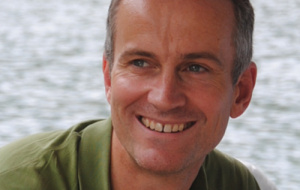Fellow with a plan
 A joint report by the Royal Academy of Engineering and Royal Society chaired by Univ Senior Research Fellow Professor Gideon Henderson presents an ambitious plan for how the UK can lead the way in deploying greenhouse gas removal (GGR) technologies to achieve net-zero carbon emissions by 2050.
A joint report by the Royal Academy of Engineering and Royal Society chaired by Univ Senior Research Fellow Professor Gideon Henderson presents an ambitious plan for how the UK can lead the way in deploying greenhouse gas removal (GGR) technologies to achieve net-zero carbon emissions by 2050.
The report details a variety of GGR technologies: including forestation and direct air capture, which aims to use chemical processes to remove CO2 from the atmosphere. The report goes on to evaluate each technology on how quickly it can be deployed, efficacy, costs, potential for scalability, and environmental and social impacts.
An estimated 130 megatonnes of CO2 would need to be removed annually to achieve net-zero emissions by 2050. This is in addition to the stringent reductions in emissions required. The report suggests rapidly increasing forestation to five percent of UK land, establishing incentives or subsidies to encourage farmers to use their land to store carbon, and building using wood and cement manufactured with carbonated waste.
Professor Henderson commented on the report: “If the UK acts now on greenhouse gas removal, we can reach national emissions targets and show how a major industrialised economy can play a leading role in meeting the goals of the Paris Agreement.
“In this report we’ve identified the available GGR technologies, how they might be used together for maximum effect, and how their phased development and deployment could enable the urgent action required to avoid the devastating impact of climate change.
“We must absolutely continue to prioritise rapid cuts in greenhouse gas emissions, but we will also have to use these GGR methods to achieve international climate goals, and steward the planet for future generations.”
Professor Henderson is Senior Research Fellow and Professor of Earth Sciences. He leads the Isotopes and Climate Research Group, which uses isotope geochemistry to study the current and past surface environment of the Earth.
The report can be found on the Royal Academy of Engineering and Royal Society websites.
Published: 30 October 2018
Explore Univ on social media
